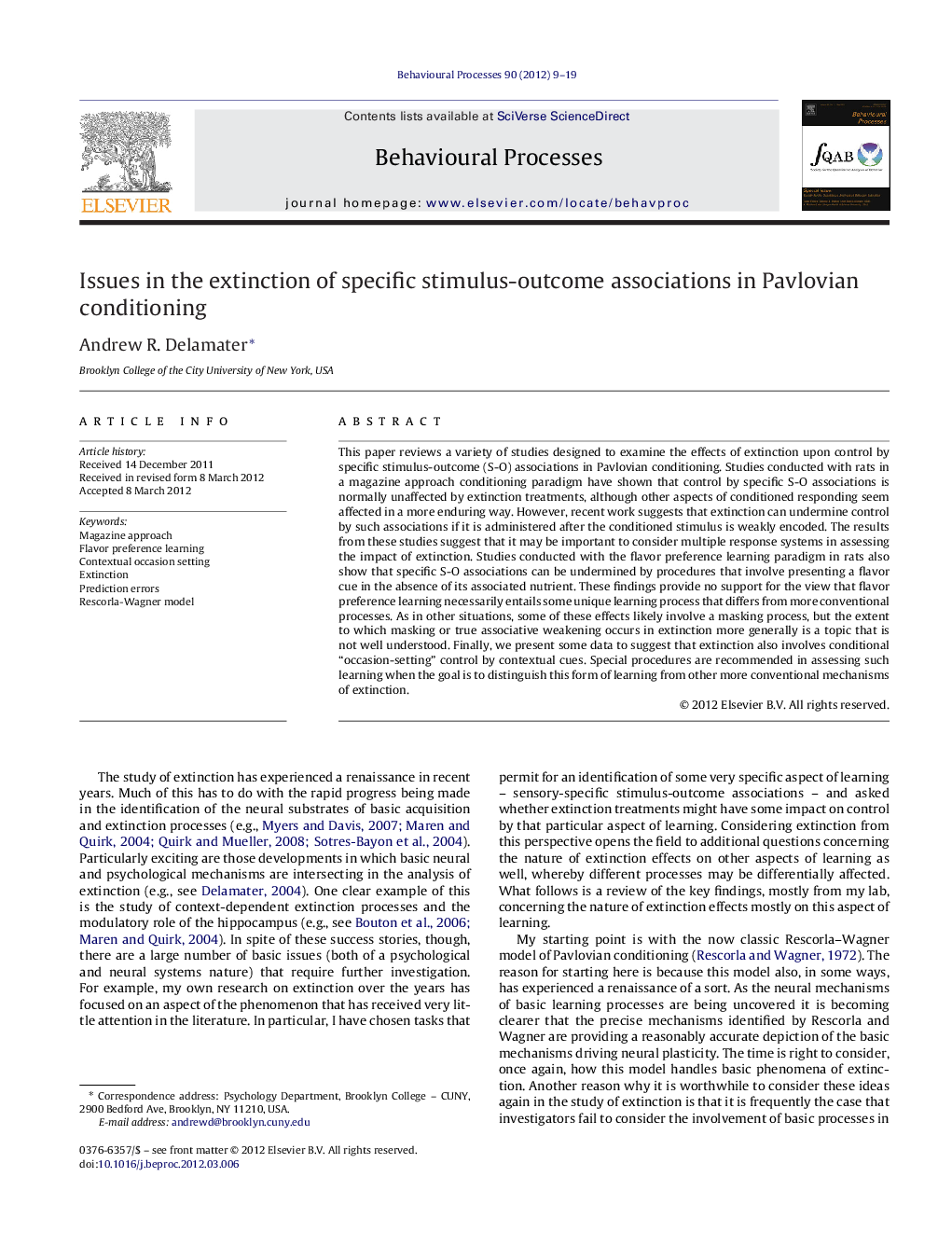| Article ID | Journal | Published Year | Pages | File Type |
|---|---|---|---|---|
| 2427085 | Behavioural Processes | 2012 | 11 Pages |
This paper reviews a variety of studies designed to examine the effects of extinction upon control by specific stimulus-outcome (S-O) associations in Pavlovian conditioning. Studies conducted with rats in a magazine approach conditioning paradigm have shown that control by specific S-O associations is normally unaffected by extinction treatments, although other aspects of conditioned responding seem affected in a more enduring way. However, recent work suggests that extinction can undermine control by such associations if it is administered after the conditioned stimulus is weakly encoded. The results from these studies suggest that it may be important to consider multiple response systems in assessing the impact of extinction. Studies conducted with the flavor preference learning paradigm in rats also show that specific S-O associations can be undermined by procedures that involve presenting a flavor cue in the absence of its associated nutrient. These findings provide no support for the view that flavor preference learning necessarily entails some unique learning process that differs from more conventional processes. As in other situations, some of these effects likely involve a masking process, but the extent to which masking or true associative weakening occurs in extinction more generally is a topic that is not well understood. Finally, we present some data to suggest that extinction also involves conditional “occasion-setting” control by contextual cues. Special procedures are recommended in assessing such learning when the goal is to distinguish this form of learning from other more conventional mechanisms of extinction.
► Pavlovian extinction learning: associative weakening or masking? ► Control by sensory-specific associations are sometimes sensitive to extinction. ► PIT and US devaluation tasks can demonstrate effects of extinction. ► Extinction is sometimes influenced by conditional control (occasion setting) processes. ► Extinction can be studied with a multi-component model of Pavlovian learning.
